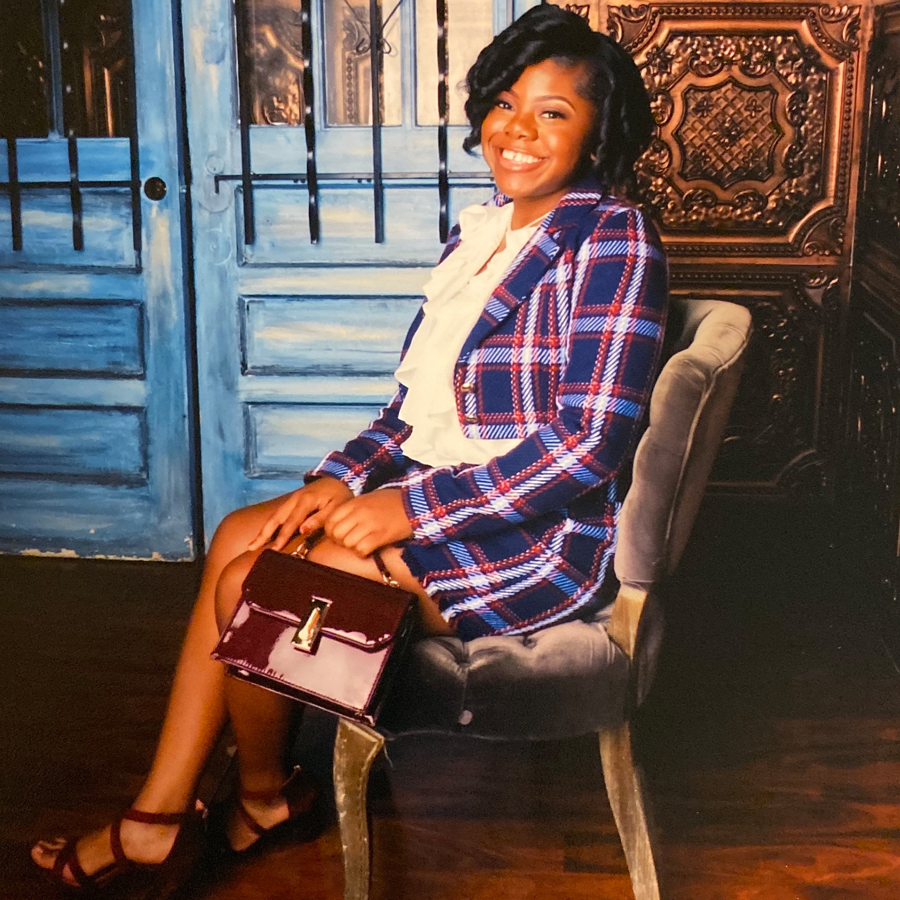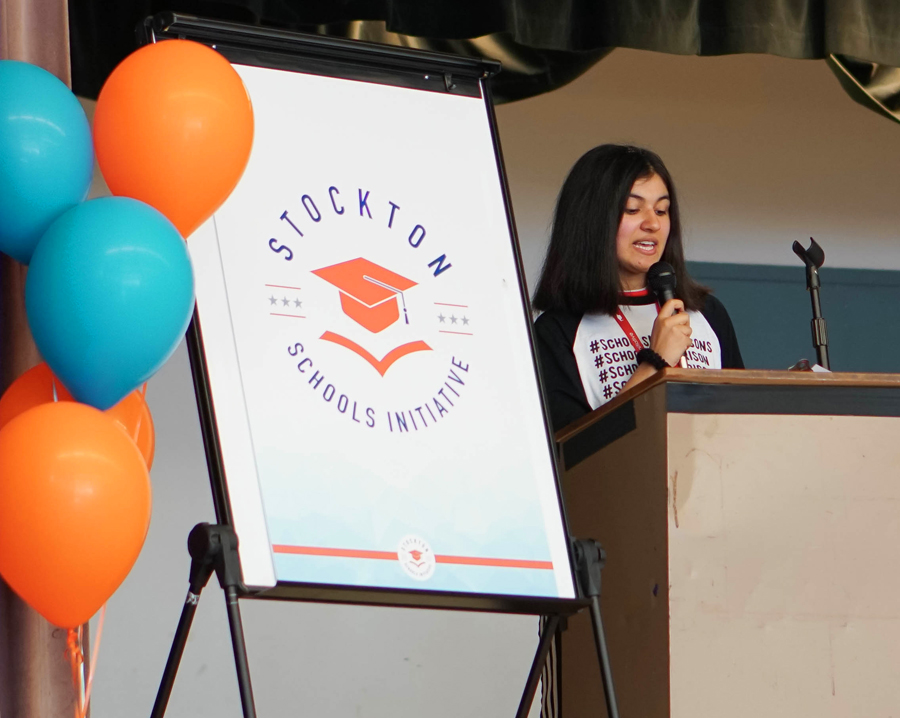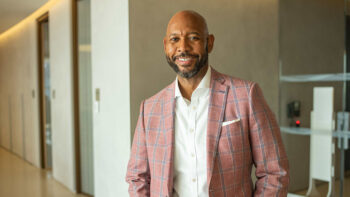Elevating the voices of community impact-makers
Socially conscious Wells Fargo APIA scholarship recipients talk about addressing the challenges Asian Americans face.
Amid the financial and societal challenges presented by the pandemic, hundreds of U.S. students from diverse backgrounds applied for the Wells Fargo Student Impact Scholarship Program.In addition to acknowledging financial need and recognizing excellence, the scholarships were awarded to 200 students working to make an impact in their communities. The program was administered by APIA Scholars, the nation’s largest nonprofit organization devoted to creating opportunities and resources to cultivate the academic, personal, and professional success of Asian and Pacific Islander Americans. In this latest collaboration between Wells Fargo and APIA Scholars, the Impact program awarded funds to help the students continue and complete college educations and included a mentorship component, pairing scholars with professionals to offer guidance for their early professional years. The program concluded in April with a virtual celebration.
“The program was designed to offer holistic support to students, many of whom will also benefit from the mentor relationships established, which we hope will help them navigate life beyond college and into their career,” said Noël Harmon, president and executive director of APIA Scholars.
As they wrap up the academic year, several of the selected scholars took the opportunity to advance the conversation on issues facing Asian American and Pacific Islander communities and solutions they are pursuing as they move forward as community impact-makers.

Kaili Manthei
Texas A&M University — psychology major
I was born in China and adopted by a family in rural Texas when I was nine months old. I grew up in a predominantly white area. My parents are white, and my friends and family never really saw me as Asian or Chinese.
I see what’s happening in the news now, and I know it can happen anywhere. I have trust in my community: We’re different races and we respect one another. I hope that, wherever we live or however we grew up, we realize that we’re all here for the long term and we need to learn to live with each other instead of lashing out at each other over things. Be slow to anger. The Bible says that, and regardless of religion, it’s so true. We don’t have to explode so quickly or easily. We need to keep a spirit of community.

Yasmina Al-Aboudy
Georgia State University — political science major, criminal justice minor
“Asian” has become an umbrella term that allows me to honor both halves of my family and my cultural background. I am racially and ethnically mixed. While my father is Arab and Persian, my mother’s ethnicity is more difficult to trace because her family has been in constant motion fleeing discrimination across Europe. I identify as Iraqi American.
I have spent a long time hiding parts of my identity out of shame and fear for my safety, but my ethnicity is a great part of who I am. Racism affects our day-to-day lives, and it destroys our connections with our culture and our identities.
Speaking from personal experience, the current rise in crimes against members of the Asian community is not new, but I am thankful for the media coverage and for technology giving us the opportunity to expose these crimes. They are finally getting the attention they deserve.
Education on cultural sensitivity and empathy is a major contribution I recommend as a solution-oriented action. As an educational goal, for myself, I want to help facilitate lasting changes in our educational system and advocate for educational equality. Students, regardless of race or economic status, deserve access to quality education.

Deja Daniel
Howard University — criminal justice and Spanish major, political science minor
My educational goals include becoming a criminal defense attorney and eventually a judge. I want to defend those who are wrongfully accused of crimes, or falsely convicted. I want to help rectify the injustices that I see. There is injustice throughout this country, and we have to fix it. As an African American, knowing the history of discrimination, many communities are going through the same thing.

It’s devastating seeing the attacks on the Asian American community, particularly the elderly, on the news. In March, not long after the shootings at the Atlanta spa, the U.S. held the first congressional hearing on the rise in hate crimes and discrimination against Asian Americans before the House Judiciary Subcommittee on the Constitution, Civil Rights, and Civil Liberties. It was the first time Asian hate had been addressed in that form since 1987. It is 2021, and we are still experiencing things that should have been addressed. Just as in the 1960s when my grandmother experienced segregation and then integration, discrimination in the Black community is still being examined. It is telling that we have not been having the conversations that need to take place.
Knowing history plays a part in combating injustice and can hopefully contribute to preventing injustices from happening over and over again, I am a huge advocate for educating. I mentor younger students, and I am working across communities from various backgrounds, including with femme-identifying group that accepts all women and nonbinary/gender-nonconforming, feminine-aligned people, regardless of their race, religion, or sexual orientation. I also believe in supporting small businesses; businesses of every community need to be supported in every way.

Sahila Shah
Pronouns: She/her
University of the Pacific, Eberhardt School of Business — business administration and marketing management major
Although born in America, I moved to my parents’ home country of Pakistan as an infant and was raised there before my family moved back to America when I was 10. As a young student in America, I very quickly learned English, and I also learned that others identified me, generally, as Asian, rather than more specifically as Pakistani.

Even before I moved to America, I was aware of the need for girls to be more empowered. My village in Pakistan was very conservative, mostly impoverished, and lacked opportunities for young girls to prosper due to societal expectations and gender norms. But I advocated for girls like me to get educated, and I was encouraged for this, especially by my mother, who spoke really no English, but knew a lot about American lifestyles and Western values from the time she spent in the U.S. Because I began advocating for the injustice present in my village at a very young age, it has allowed me to use my voice against the hatred and racism that affects me, my family, and my communities.
Even though my parents never stepped foot in school, the biggest things in life they wanted for me was for me to read and to use my voice. I am an intern for a group in Stockton, California, called “Empowering Marginalized Asian Communities.” We serve as allies across Asian communities, addressing systemic issues using an intersectional lens. For instance, we have done curriculums where we talk about how to get civically involved by looking at the policy-making process, and how to be change-makers.
I am looking for solutions. When I see members of the Asian communities being targeted, it is disheartening. With every attack we hear about in BIPOC communities, we are always pushed back to our own traumas. So my hope is that we can work together and that people keep interfering, to help, when we see bad things happening. All of our communities deserve to be at peace.








